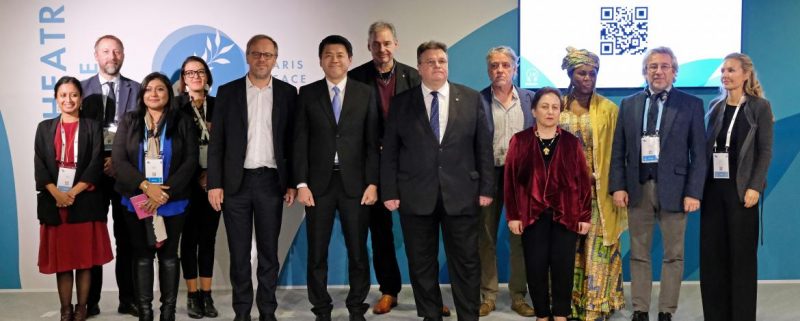Eleven organisations from around the world unveiled the newly created Forum on Information & Democracy at the Paris Peace Forum on Wednesday.
It will implement the principles of the International Partnership on Information and Democracy – an intergovernmental agreement signed by 30 States last September as part of a process kicked off by Reporters Without Borders (RSF).
The Forum will issue recommendations for governments on standards for the regulation of online information and communication. It will also encourage self-regulatory mechanisms and promote the social function of journalism.
The association will be based in Paris and the first general assembly was held this week at RSF’s headquarters. The 11 founding members are NGOs, think tanks, multi-stakeholder initiatives and research centers: CIGI (Canada), CIVICUS (South Africa), the Digital Rights Foundation (Pakistan), Free Press Unlimited (Netherlands), the Human Rights Centre at UC Berkeley School of Law, University of California (United States), the Institute for Strategic Dialogue (United Kingdom), OBSERVACOM (Uruguay), the Open Government Partnership, the Peace Research Institute Oslo (Norway), Reporters without Borders/RSF (France) and Research ICT Africa (South Africa).
RSF launched the International Initiative on Information and Democracy in September 2018 when it created the International Commission on Information and Democracy consisting of 25 prominent figures of 18 nationalities.
Members of the Commission include laureates of the Nobel Prize in Economic Sciences Joseph Stiglitz and Amartya Sen, French jurist Mireille Delmas Marty, Honorary Professor at the Collége de France, journalists Maria Ressa and Can Dündar, and new technology expert Yochai Benkler, co-director of the Berkman Klein Centre at Harvard University.
This commission had drafted the International Declaration on Information and Democracy which received the support of 12 Heads of State and Government in November 2018, including Emmanuel Macron (France), Carlos Alvarado (Costa Rica), Bechir Caid Essebsi (Tunisia), Erna Solberg (Norway) and Justin Trudeau (Canada). It also received the support of the UN Secretary General Antonio Guterres, UNESCO Director-General Audrey Azoulay, and the Council of Europe Secretary General Thorbjørn Jagland.













